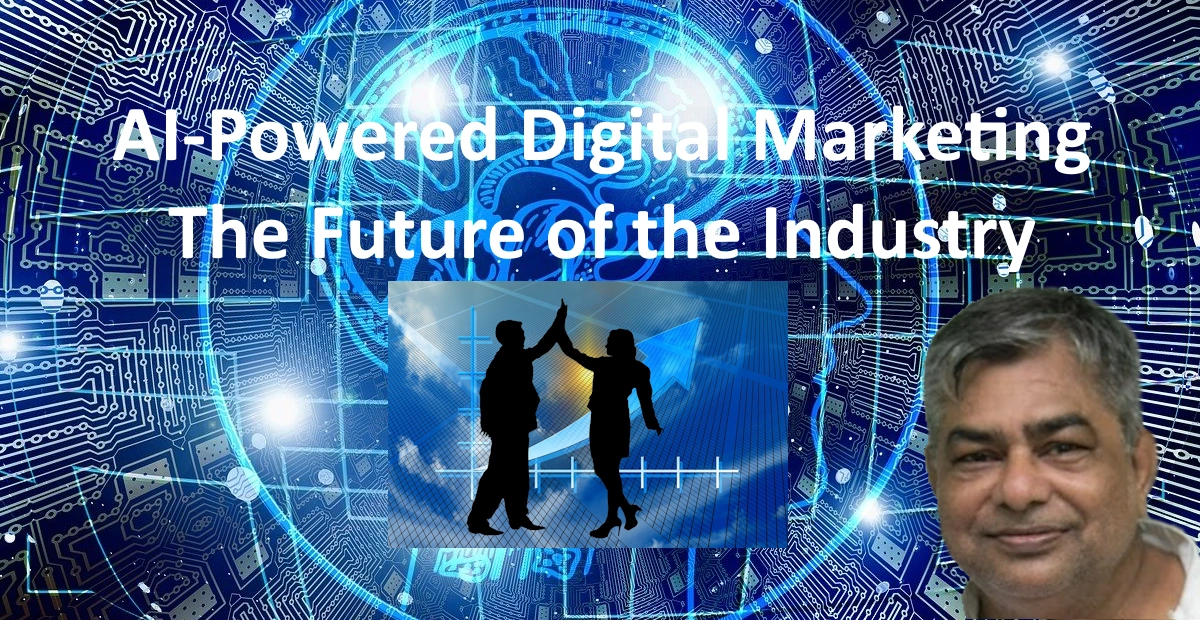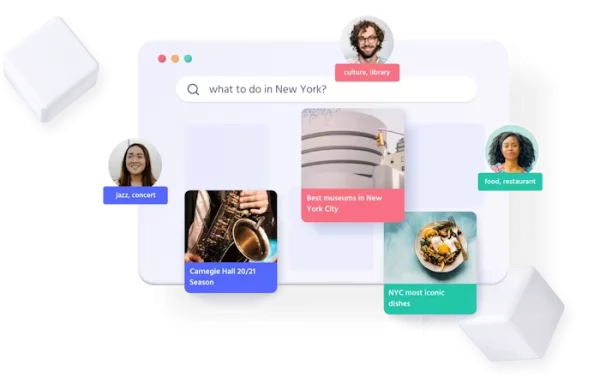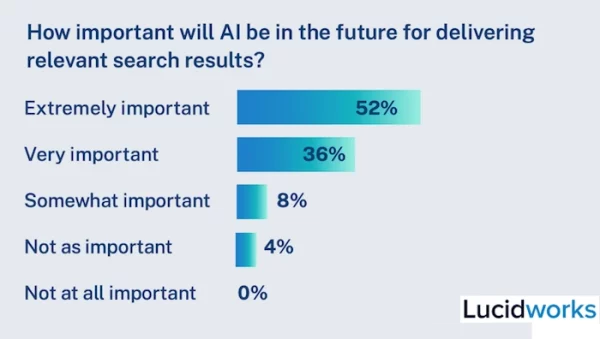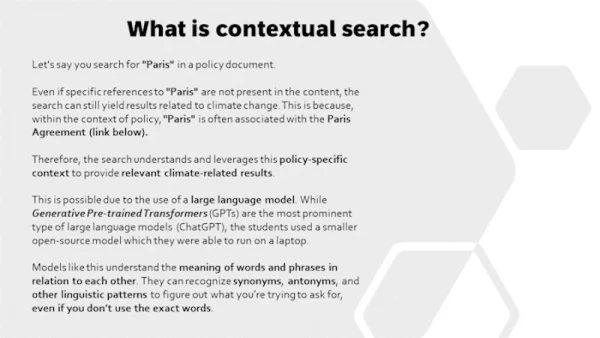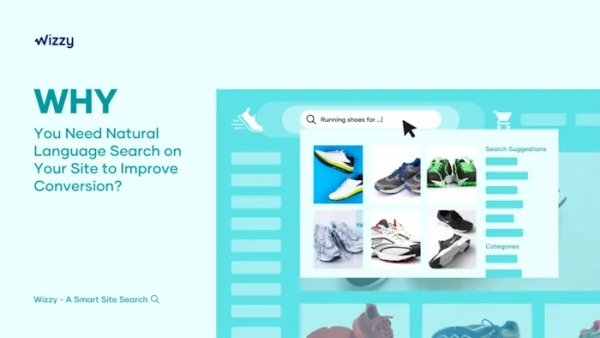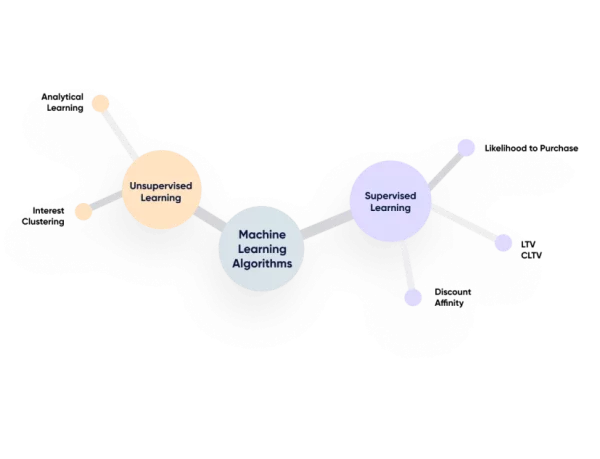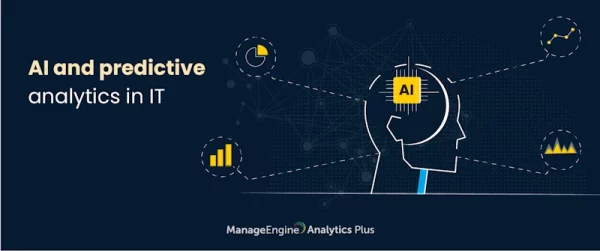Unlocking the Future of Marketing: Artificial Intelligence’s Impact
In today’s digitally-driven world, marketing is undergoing a profound transformation, thanks to the infusion of Artificial Intelligence (AI).
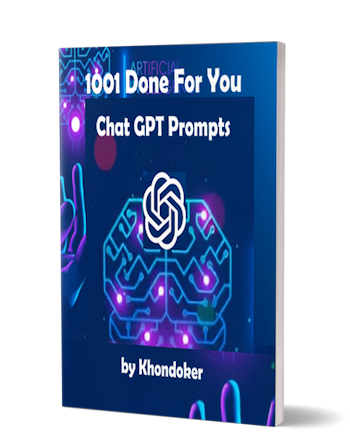 This blog post explores the revolutionary integration of AI into digital marketing, dissecting the factors that influence its adoption and diving deep into various aspects of this technological marvel.
This blog post explores the revolutionary integration of AI into digital marketing, dissecting the factors that influence its adoption and diving deep into various aspects of this technological marvel.
Read on to discover why this article is worth your time and how AI is reshaping the marketing landscape.
Introduction
The marriage of Artificial Intelligence and digital marketing is not just a buzzword; it’s a game-changer. AI’s potential to optimize marketing strategies, understand customer behavior, and deliver real-time insights is reshaping the industry.
In this article, we will delve into the intricate details of AI’s role in digital marketing and uncover how it’s shaping the future of this dynamic field.
1. Real-Time Reaction: How Does AI Enable Instant Adaptation?
In this section, we’ll explore how AI empowers businesses to react to customer behavior in real-time. We will discover how AI-driven analytics can help marketers make immediate adjustments to their campaigns for maximum impact.
Let’s say a business is running a marketing campaign on social media. AI-powered analytics can track how many people are seeing the campaign, how many people are clicking on the links, and how many people are converting.
If the campaign is not performing as well as expected, the business can make adjustments to the campaign in real-time, such as changing the ad copy or targeting a different audience.
AI-powered analytics can also help businesses identify trends and patterns in customer behavior. This information can be used to create more personalized and relevant marketing campaigns.
For example, if AI analytics shows that a particular group of customers is interested in a certain product, the business can create a targeted marketing campaign for that group of customers.
By enabling businesses to react to customer behavior in real-time and identify trends and patterns in customer behavior, AI is helping businesses to improve the effectiveness of their marketing campaigns.
2. Customer Behavior Prediction: Can AI Really Read Minds?
AI can’t read minds, but it can use data to make predictions about customer behavior. This is done by analyzing large amounts of data, such as past purchase history, website browsing behavior, and social media activity.
By understanding customer behavior patterns, AI can predict what customers are likely to do in the future.
For example, AI can be used to predict which customers are most likely to churn (cancel their subscription). This information can then be used to target these customers with special offers or other incentives to keep them from churning.
AI can also be used to predict which products or services customers are likely to be interested in. This information can then be used to create personalized marketing campaigns that are more likely to be successful.
While AI can’t read minds, it can be a powerful tool for predicting customer behavior. This information can be used to improve the effectiveness of marketing campaigns, increase customer satisfaction, and reduce churn.
3. Increasing the Return on Investment: AI’s Secret to Maximizing ROI
Return on investment (ROI) is a measure of how much money a business makes from an investment. AI can help businesses to increase their ROI in a number of ways.
Personalized marketing: AI can be used to create personalized marketing campaigns that are more likely to appeal to customers. This can lead to higher click-through rates, conversion rates, and sales.
Automated marketing: AI can be used to automate marketing tasks, such as email marketing and social media marketing. This can save businesses time and money, and it can also free up marketers to focus on more strategic tasks.
Data analysis: AI can be used to analyze large amounts of data to identify trends and patterns. This information can be used to improve marketing campaigns and make better business decisions.
Fraud detection: AI can be used to detect fraudulent activity, such as click fraud and credit card fraud. This can help businesses to protect themselves from financial losses.
Chatbots: AI chatbots can be used to answer customer questions and resolve issues 24/7. This can help businesses to improve customer satisfaction and reduce the cost of customer service.
Predictive analytics: AI can be used to predict future customer behavior. This information can be used to create more personalized marketing campaigns and make better business decisions.
All of these benefits can lead to increased ROI for businesses. For example, a study by McKinsey found that businesses that use AI-powered marketing campaigns can see an average ROI of 20%.
As AI technology continues to develop, we can expect to see even more ways to use AI to increase ROI. This will help businesses to stay ahead of the competition and achieve their business goals.
It is important to note that AI is not a magic bullet. It is still a developing technology, and it is not always easy to implement. However, the potential benefits of AI are significant, and businesses that are willing to invest in AI are likely to see a positive return on their investment.
4. Enhancing the Search Sessions: How AI Makes Searching Smarter
AI-powered search engines are transforming user experiences. We’ll discuss how AI understands user intent, delivering more accurate and relevant search results, ultimately boosting user engagement.
- Personalized search results: AI can be used to personalize search results based on a user’s past search history, interests, and demographics. This can help users find the information they are looking for more quickly and easily.
Personalized search results using AI
- Relevant search results: AI can be used to filter out irrelevant search results and only show the most relevant results. This can help users save time and find the information they need more quickly.
Relevant search results using AI
- Contextual search results: AI can be used to understand the context of a search query and provide more relevant results. For example, if a user searches for “coffee,” AI can understand that the user is likely interested in finding coffee shops near them, rather than just information about coffee.
Contextual search results using AI
- Natural language search: AI can be used to understand natural language queries and provide relevant results. This means that users can search using their own words, ratherthan having to use specific keywords.
Natural language search using AI
- Voice search: AI can be used to power voice search, which allows users to search by speaking their queries. This is a convenient way to search for information, especially when hands-free is needed.
Voice search using AI
These are just a few of the ways that AI is being used to enhance search sessions. As AI technology continues to develop, we can expect to see even more innovative ways to use AI to make searching smarter.
Here are some additional benefits of using AI in search:
- Improved accuracy: AI can help to improve the accuracy of search results by understanding the context of a query and filtering out irrelevant results.
- Reduced bias: AI can help to reduce bias in search results by removing the human element from the process.
- Increased personalization: AI can help to personalize search results by understanding a user’s interests and demographics.
- Enhanced user experience: AI can help to enhance the user experience by making search more convenient and efficient.
Overall, AI has the potential to make search smarter, more accurate, and more personalized. This can lead to a better experience for users and improved results for businesses.
5. Advertising: Precision Targeting with AI
AI is being used to improve the precision of advertising in a number of ways.
- Personalized advertising: AI can be used to personalize advertising based on a user’s past behavior, interests, and demographics. This can help businesses ensure that their ads are seen by the people who are most likely to be interested in them.
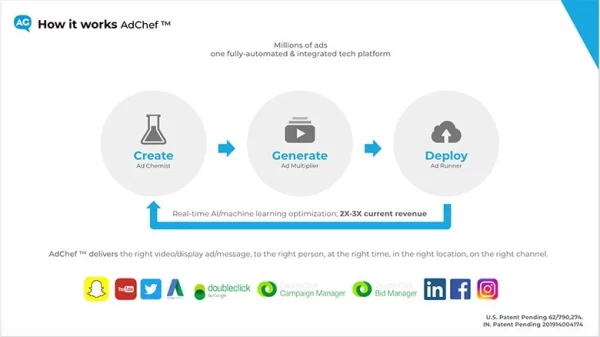
Personalized advertising using AI
Contextual advertising: AI can be used to understand the context of a user’s browsing behavior and show them ads that are relevant to the content they are viewing. For example, if a user is browsing a website about coffee, they might be shown ads for coffee products.
Contextual advertising using AI
Behavioral targeting: AI can be used to track a user’s browsing behavior over time and show them ads that are relevant to their interests. This can be done by using cookies or other tracking tech.
- Retargeting: AI can be used to show ads to people who have previously visited a website or interacted with a business. This can be a way to remind people about a product or service that they are interested in.
Retargeting using AI
Predictive analytics: AI can be used to predict future customer behavior and show them ads that are likely to be relevant to them. This can be done by analyzing data such as past purchase history, website browsing behavior, and social media activity.
Predictive analytics using AI
These are just a few of the ways that AI is being used to improve the precision of advertising. As AI technology continues to develop, we can expect to see even more innovative ways to use AI to target ads more precisely.
Here are some additional benefits of using AI in advertising:
- Increased efficiency: AI can help businesses to save time and money by automating the process of targeting ads.
- Improved ROI: AI can help businesses to improve the ROI of their advertising campaigns by ensuring that their ads are seen by the people who are most likely to be interested in them.
- Reduced fraud: AI can help businesses to reduce fraud by detecting and preventing fraudulent clicks and impressions.
- Enhanced user experience: AI can help to enhance the user experience by making ads more relevant and less intrusive.
Overall, AI has the potential to make advertising more precise, efficient, and effective. This can lead to better results for businesses and a better experience for users.
6. Search Engine Optimization (SEO): AI’s Impact on Rankings
AI is having a significant impact on search engine optimization (SEO). Here are some of the ways that AI is being used to improve SEO:
- Natural language processing: AI can be used to understand natural language queries and optimize content accordingly. This means that businesses can create content that is more likely to be found by users who are searching for information about their products or services.
- Machine learning: AI can be used to learn from data and improve SEO strategies over time. This means that businesses can get better results from their SEO efforts without having to constantly change their strategies.
- Data mining: AI can be used to mine data from websites and social media to identify trends and patterns that can be used to improve SEO. This means that businesses can get a better understanding of what users are looking for and how they are searching for it.
- Image recognition: AI can be used to recognize images and optimize content accordingly. This means that businesses can create content that includes images that are more likely to be found by users who are searching for information about their products or services.
- Voice search: AI can be used to power voice search, which allows users to search by speaking their queries. This means that businesses need to optimize their content for voice search in order to be found by users who are using this method to search.
These are just a few of the ways that AI is being used to improve SEO. As AI technology continues to develop, we can expect to see even more innovative ways to use AI to improve SEO rankings.
Here are some additional benefits of using AI in SEO:
- Increased efficiency: AI can help businesses to save time and money by automating the process of SEO.
- Improved ROI: AI can help businesses to improve the ROI of their SEO campaigns by ensuring that their websites are optimized for the right keywords and phrases.
- Reduced fraud: AI can help businesses to reduce fraud by detecting and preventing fraudulent clicks and impressions.
- Enhanced user experience: AI can help to enhance the user experience by making search results more relevant and less intrusive.
Overall, AI has the potential to make SEO more efficient, effective, and profitable. This can lead to better results for businesses and a better experience for users.
However, it is important to note that AI is not a magic bullet. It is still a developing technology, and it is not always easy to implement. Businesses that are considering using AI for SEO should do their research and work with a qualified SEO expert to ensure that they are using AI in the most effective way possible.
7. Social Media Marketing: Personalization and Beyond
Social media marketing is the use of social media platforms to promote a product or service. It is a powerful tool that can be used to reach a large audience, build relationships with customers, and drive sales.
AI is having a significant impact on social media marketing. Here are some of the ways that AI is being used in social media marketing:
- Personalization: AI can be used to personalize social media marketing campaigns based on a user’s interests, demographics, and past behavior. This can help businesses to reach their target audience more effectively.
- Automation: AI can be used to automate social media marketing tasks, such as scheduling posts, responding to comments, and running contests. This can save businesses time and money.
- Analytics: AI can be used to analyze social media data to identify trends and patterns. This information can be used to improve social media marketing campaigns and make better business decisions.
- Bots: AI chatbots can be used to answer customer questions and resolve issues 24/7. This can help businesses to improve customer satisfaction and reduce the cost of customer service.
- Crowdsourcing: AI can be used to crowdsource ideas and feedback from social media users. This can help businesses to improve their products and services.
These are just a few of the ways that AI is being used in social media marketing. As AI technology continues to develop, we can expect to see even more innovative ways to use AI in social media marketing.
Here are some additional benefits of using AI in social media marketing:
- Increased engagement: AI can help businesses to increase engagement with their social media content by making it more relevant and personalized.
- Improved ROI: AI can help businesses to improve the ROI of their social media marketing campaigns by making them more efficient and effective.
- Reduced fraud: AI can help businesses to reduce fraud by detecting and preventing fraudulent activity on social media.
- Enhanced user experience: AI can help to enhance the user experience by making social media more engaging and informative.
Overall, AI has the potential to make social media marketing more effective, efficient, and profitable. This can lead to better results for businesses and a better experience for users.
However, it is important to note that AI is not a magic bullet. It is still a developing technology, and it is not always easy to implement. Businesses that are considering using AI for social media marketing should do their research and work with a qualified social media marketing expert to ensure that they are using AI in the most effective way possible.
In addition to personalization, AI can also be used for other purposes in social media marketing, such as:
- Content creation: AI can be used to create content that is more likely to be engaging and relevant to users.
- Targeting: AI can be used to target social media ads more precisely to reach the right people.
- Measurement: AI can be used to measure the effectiveness of social media marketing campaigns and track ROI.
As AI technology continues to develop, we can expect to see even more innovative ways to use AI in social media marketing.
8. Pay-Per-Click (PPC) and Ad Targeting: AI’s Role in Cost-Effective Advertising
Pay-per-click (PPC) advertising is a type of online advertising where advertisers pay a fee each time someone clicks on their ad. It is a popular way to reach a targeted audience and drive traffic to a website.
AI is having a significant impact on PPC advertising. Here are some of the ways that AI is being used in PPC advertising:
- Ad targeting: AI can be used to target PPC ads more precisely to reach the right people. This can help businesses to improve the efficiency of their PPC campaigns and get more bang for their buck.
- Keyword research: AI can be used to research keywords that are relevant to a business’s products or services. This can help businesses to choose the right keywords for their PPC campaigns and improve their chances of getting their ads seen by the right people.
- Bidding: AI can be used to automate bidding for PPC ads. This can help businesses to save time and money and get the most out of their PPC campaigns.
- Ad copy: AI can be used to generate ad copy that is more likely to be clicked on. This can help businesses to improve the performance of their PPC campaigns.
- Fraud detection: AI can be used to detect and prevent fraudulent clicks on PPC ads. This can help businesses to protect their budgets and ensure that their ads are only seen by real people.
These are just a few of the ways that AI is being used in PPC advertising. As AI technology continues to develop, we can expect to see even more innovative ways to use AI in PPC advertising.
Here are some additional benefits of using AI in PPC advertising:
- Increased efficiency: AI can help businesses to save time and money by automating the process of PPC advertising.
- Improved ROI: AI can help businesses to improve the ROI of their PPC campaigns by making them more efficient and effective.
- Reduced fraud: AI can help businesses to reduce fraud by detecting and preventing fraudulent activity on PPC platforms.
- Enhanced user experience: AI can help to enhance the user experience by making PPC ads more relevant and less intrusive.
Overall, AI has the potential to make PPC advertising more effective, efficient, and profitable. This can lead to better results for businesses and a better experience for users.
However, it is important to note that AI is not a magic bullet. It is still a developing technology, and it is not always easy to implement. Businesses that are considering using AI for PPC advertising should do their research and work with a qualified PPC expert to ensure that they are using AI in the most effective way possible.
9. Chatbots: The Future of Customer Interaction
Chatbots are computer programs that can simulate conversation with human users. They are increasingly being used in customer service applications, as they can provide 24/7 support and answer customer questions quickly and efficiently.
There are many reasons why chatbots are becoming the future of customer interaction. Here are some of the benefits of using chatbots:
- 24/7 availability: Chatbots can be available 24/7, which can be helpful for businesses that need to provide customer support outside of normal business hours.
- Quick and efficient: Chatbots can answer customer questions quickly and efficiently, which can help businesses to improve customer satisfaction.
- Cost-effective: Chatbots can be a cost-effective way to provide customer service, as they can replace the need for human customer service representatives.
- Scalable: Chatbots can be scaled to handle a large volume of customer inquiries, which can be helpful for businesses that are growing rapidly.
- Personalized: Chatbots can be personalized to the individual customer, which can help to improve the customer experience.
As chatbot technology continues to develop, we can expect to see even more innovative ways to use chatbots in customer service applications. For example, chatbots could be used to provide product recommendations, book appointments, or even resolve customer complaints.
However, it is important to note that chatbots are not a perfect solution. They can sometimes misunderstand customer queries, and they may not be able to provide the same level of customer service as a human representative.
Overall, chatbots have the potential to revolutionize the way that businesses interact with their customers. They can provide 24/7 support, answer customer questions quickly and efficiently, and be cost-effective. As chatbot technology continues to develop, we can expect to see even more innovative ways to use chatbots in customer service applications.
Here are some additional challenges of using chatbots:
- Accuracy: Chatbots can sometimes misunderstand customer queries. This can lead to frustration for customers and can damage the reputation of the business.
- Personalization: Chatbots can be difficult to personalize to the individual customer. This can make it difficult to provide a truly personalized customer experience.
- Trust: Some customers may not trust chatbots to provide accurate or helpful information. This can be a barrier to adoption of chatbots.
Despite these challenges, chatbots have the potential to be a valuable tool for businesses that are looking to improve their customer service. By carefully considering the challenges and benefits of chatbots, businesses can make an informed decision about whether or not to use them.
10. Semantic Search and Voice Search: AI’s Contribution to Smarter Queries
Traditional search engines rely on keywords to match queries with results. However, this can be limiting, as users often use natural language queries that are not always easy to translate into keywords.
Semantic search is a type of search that uses artificial intelligence (AI) to understand the meaning of queries. This allows semantic search engines to match queries with results that are more relevant, even if the queries are not explicitly stated in keywords.
For example, if a user searches for “coffee shops near me,” a semantic search engine would understand that the user is looking for coffee shops in their vicinity. The search engine would then return results for coffee shops that are located near the user’s current location.
Voice search is a type of search that allows users to search by speaking their queries. This is a more natural way to search, as it does not require users to type their queries.
Voice search can be powered by semantic search, which allows the search engine to understand the meaning of the user’s query. This allows voice search engines to return more relevant results, even if the queries are not explicitly stated in keywords.
For example, if a user says “I’m looking for a coffee shop near me,” a voice search engine powered by semantic search would understand that the user is looking for coffee shops in their vicinity. The search engine would then return results for coffee shops that are located near the user’s current location.
Semantic search and voice search are two ways that AI is contributing to smarter queries. These technologies are making it easier for users to find the information they are looking for, even if they are not using explicit keywords.
Here are some of the benefits of using semantic search and voice search:
- More relevant results: Semantic search and voice search can return more relevant results, even if the queries are not explicitly stated in keywords. This is because these technologies understand the meaning of queries, rather than just the keywords.
- Easier to use: Semantic search and voice search are easier to use than traditional search engines. This is because they allow users to search using natural language, rather than having to type keywords.
- More natural: Semantic search and voice search are more natural ways to search. This is because they allow users to search by speaking their queries, rather than having to type them.
As AI technology continues to develop, we can expect to see even more innovative ways to use semantic search and voice search. These technologies have the potential to revolutionize the way that we search for information.
11. Future Artificial Intelligence on Digital Marketing: What Lies Ahead?
Artificial intelligence (AI) is rapidly changing the landscape of digital marketing. Here are some of the ways that AI is expected to impact digital marketing in the future:
- Personalized marketing: AI can be used to personalize marketing campaigns based on a user’s interests, demographics, and past behavior. This can help businesses to reach their target audience more effectively.
- Automated marketing: AI can be used to automate marketing tasks, such as scheduling posts, responding to comments, and running contests. This can save businesses time and money.
- Data-driven marketing: AI can be used to analyze data to identify trends and patterns. This information can be used to improve marketing campaigns and make better business decisions.
- Real-time marketing: AI can be used to track customer behavior in real time. This information can be used to target ads more precisely and deliver timely messages.
- Creative marketing: AI can be used to generate creative content, such as images, videos, and copy. This can help businesses to stand out from the competition and engage with their target audience.
- Fraud detection: AI can be used to detect and prevent fraudulent activity, such as click fraud and credit card fraud. This can help businesses to protect their budgets and ensure that their marketing efforts are effective.
These are just a few of the ways that AI is expected to impact digital marketing in the future. As AI technology continues to develop, we can expect to see even more innovative ways to use AI in digital marketing.
Here are some additional benefits of using AI in digital marketing:
- Increased efficiency: AI can help businesses to save time and money by automating marketing tasks.
- Improved ROI: AI can help businesses to improve the ROI of their marketing campaigns by making them more efficient and effective.
- Reduced fraud: AI can help businesses to reduce fraud by detecting and preventing fraudulent activity.
- Enhanced user experience: AI can help to enhance the user experience by making marketing campaigns more relevant and engaging.
Overall, AI has the potential to make digital marketing more effective, efficient, and profitable. This can lead to better results for businesses and a better experience for users.
However, it is important to note that AI is not a magic bullet. It is still a developing technology, and it is not always easy to implement. Businesses that are considering using AI for digital marketing should do their research and work with a qualified digital marketing expert to ensure that they are using AI in the most effective way possible.
Here are some of the challenges of using AI in digital marketing:
- Data privacy: AI relies on data to train and improve its models. This data can be sensitive, and businesses need to be careful about how they collect and use it.
- Bias: AI models can be biased, which can lead to unfair or discriminatory outcomes. Businesses need to be aware of this and take steps to mitigate bias in their AI models.
- Interpretability: AI models can be difficult to interpret, which can make it difficult for businesses to understand how they work and make decisions about how to use them.
Despite these challenges, AI has the potential to be a powerful tool for businesses that are looking to improve their digital marketing. By carefully considering the challenges and benefits of AI, businesses can make an informed decision about whether or not to use it.
12. Conclusion: Embrace the AI Revolution
Artificial intelligence (AI) is rapidly changing the world, and digital marketing is no exception. Businesses that want to stay ahead of the curve need to embrace AI and use it to their advantage.
Here are some of the ways that businesses can embrace the AI revolution in digital marketing:
- Invest in AI technologies: Businesses need to invest in AI technologies, such as chatbots, predictive analytics, and natural language processing. These technologies can help businesses to automate tasks, personalize marketing campaigns, and improve the overall customer experience.
- Hire AI talent: Businesses need to hire AI talent, such as data scientists and machine learning engineers. These professionals can help businesses to develop and implement AI solutions.
- Partner with AI companies: Businesses can partner with AI companies to get access to AI expertise and technologies. This can be a good option for businesses that do not have the resources to develop their own AI solutions.
- Stay up-to-date on AI trends: Businesses need to stay up-to-date on the latest AI trends. This will help them to make informed decisions about how to use AI in their marketing campaigns.
The AI revolution is here, and it is not going away. Businesses that embrace AI will be the ones that succeed in the future.
Here are some additional thoughts on why businesses should embrace the AI revolution in digital marketing:
- AI can help businesses to improve the customer experience. AI can be used to personalize marketing campaigns, provide customer service, and even create content. This can help businesses to build relationships with their customers and improve customer loyalty.
- AI can help businesses to save money. AI can be used to automate tasks, such as scheduling posts and responding to comments. This can save businesses time and money.
- AI can help businesses to grow their business. AI can be used to identify new markets, target new customers, and improve the efficiency of marketing campaigns. This can help businesses to grow their business and reach their goals.
Overall, there are many reasons why businesses should embrace the AI revolution in digital marketing. AI is a powerful tool that can help businesses to improve the customer experience, save money, and grow their business. Businesses that do not embrace AI will be at a competitive disadvantage.
Key Takeaways
- AI empowers real-time reactions to customer behavior.
- AI predicts customer behavior for personalized marketing.
- AI maximizes ROI through precision and efficiency.
- AI enhances search sessions with accurate results.
- AI transforms advertising with targeted campaigns.
- AI revolutionizes SEO with content optimization and trend prediction.
- AI personalizes social media marketing and optimizes ad campaigns.
- AI makes PPC advertising more cost-effective.
- AI-driven chatbots provide instant customer support and collect valuable data.
- AI improves semantic and voice search for smarter queries.
- AI’s applications in digital marketing are vast and varied.
- The future of AI in digital marketing promises smarter searches, ads, and continuous learning.
The future of marketing is AI-powered, and those who embrace this revolution are poised for success in the ever-evolving digital landscape. Stay ahead of the curve and unlock the full potential of AI in digital marketing.
